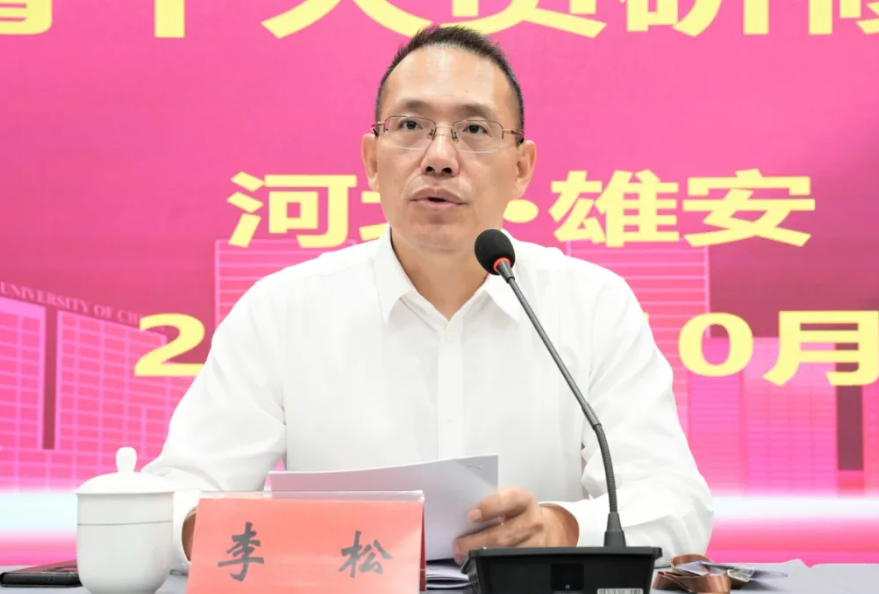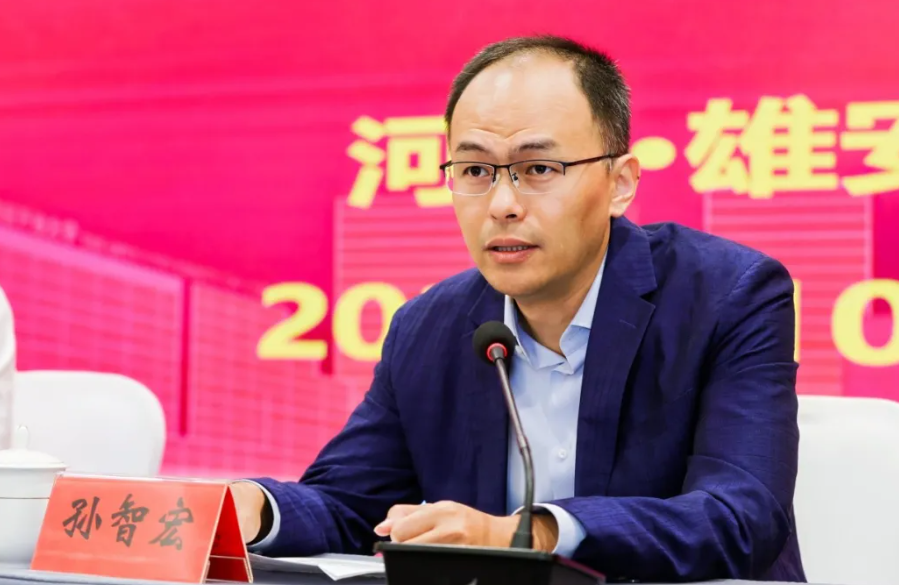 From 9 to 12 October 2024, the Open University of China (OUC) held a training workshop for key personnel in quality management of the educational system in Xiong’an New Area, Hebei Province.
From 9 to 12 October 2024, the Open University of China (OUC) held a training workshop for key personnel in quality management of the educational system in Xiong’an New Area, Hebei Province.
This initiative is a significant step in the quality management sector of the OUC’s educational system to thoroughly study and implement the guiding principles of the Third Plenary Session of the 20th Central Committee of the Communist Party of China (CPC) and the important directives delivered by General Secretary Xi Jinping at the National Conference on Education. It is also a concrete action to carry out the OUC’s “1234” strategy and to serve the development of a leading country in education, with the aim of further strengthening the quality management workforce and enhancing the effectiveness of open education governance. Li Song, a member of the Party Committee and vice president of the OUC, attended the opening ceremony and delivered a keynote speech. Sun Zhihong, a member of the Party Committee and vice president of Hebei Open University (OU), attended the opening ceremony and delivered the opening remarks, while Zhou Aijun, deputy director of the Education Quality Evaluation Agency of the Ministry of Education (MOE), delivered an online lecture. Jin Yan, director of the Department of Quality Monitoring and Control of the OUC, presided over the opening ceremony.


Li Song attended the opening ceremony and delivered a keynote speech.

Sun Zhihong attended the opening ceremony and delivered the opening remarks.
Li Song stated that promoting the high-quality development of open universities is an important responsibility entrusted to the quality management sector of the open university educational system in this new era. He stressed the need to establish a comprehensive and correct quality concept in a broader sense, embedding a quality-conscious mindset throughout all aspects and processes of open education. Everyone should strive to lead, promote, practise, and safeguard the high-quality development of open universities. Li Song highlighted that open university education is currently transitioning from “standardisation” to “high-quality” development. It’s necessary to uphold the development concept of “Four Leaderships for One Promotion”, which means the leadership through standardisation, quality, distinctiveness, and reform to promote high-quality development.
Zhou Aijun delivered a special lecture on "Quality Assurance in Higher Education and the Development of Quality Culture." He introduced the basic theories and current development of higher education evaluation, explained the structure and fundamental principles of building an internal quality assurance system, as well as its application methods and implementation strategies. Using real examples, he analysed two models of quality governance and clarified the meaning, significance, and key role of quality culture, along with the pathways for its cultivation.
The training workshop included expert lectures, experience sharing, field studies, and group discussions. Lu Zizhou, secretary of the Party Committee at Central China Normal University (CCNU) and former dean of the College of Vocational and Further Education, identified current problems within the quality assurance system of open universities by drawing on the practice of evaluations from the perspective of branches, and provided practical and feasible improvement suggestions.
Gu Xiaohua, dean of the Academic Affairs Department of the OUC, introduced the work the department has done to promote the high-quality development of open education in five areas. Li Wei, director of the Learning Resources Department, explained the quality standards and work orientations for resource development at the OUC. Wu Shuping, deputy director of the Department of Digitalisation, shared practices and insights related to the digital transformation of open universities.
During the experience-sharing session, the branches of Hebei, Heilongjiang, Anhui, and Sichuan shared their experiences and insights in various areas, such as county-level school star ratings, live teaching supervision, quality management of degree-related work, and the development and implementation of teaching inspection systems.
During the field study session, participants visited the Xiong’an New Area Planning Museum and the Xiong’an Urban Computing Centre, which inspired reflections and explorations of future education models. In the group discussion session, participants, organised into groups, engaged in discussions on themes such as quality assurance system construction, teaching quality management through digital intelligence empowerment, quality governance within the educational system, and the implementation of the teaching process.
The 2024 training workshop for key personnel in quality management of the OUC educational system received widespread acclaim from participants. Everyone agreed that the training activities were diverse and substantial, and that the instructors were of high caliber. Participants expressed hope that the headquarters would organise more such events to facilitate mutual learning and growth among the various branches.
This training workshop plays a positive role in promoting the establishment of “quality concept in a broader sense” within the educational system and enhancing the professional skills and qualities of quality management personnel. It is beneficial for building a shared and collaboratively development system, seizing new opportunities, reaching new heights, and jointly advancing the improvement and quality enhancement of open education.
Over 130 management personnel engaged in quality monitoring and evaluation from 44 branches participated in the offline training workshop with successful completion.
By He Dandan, OUC